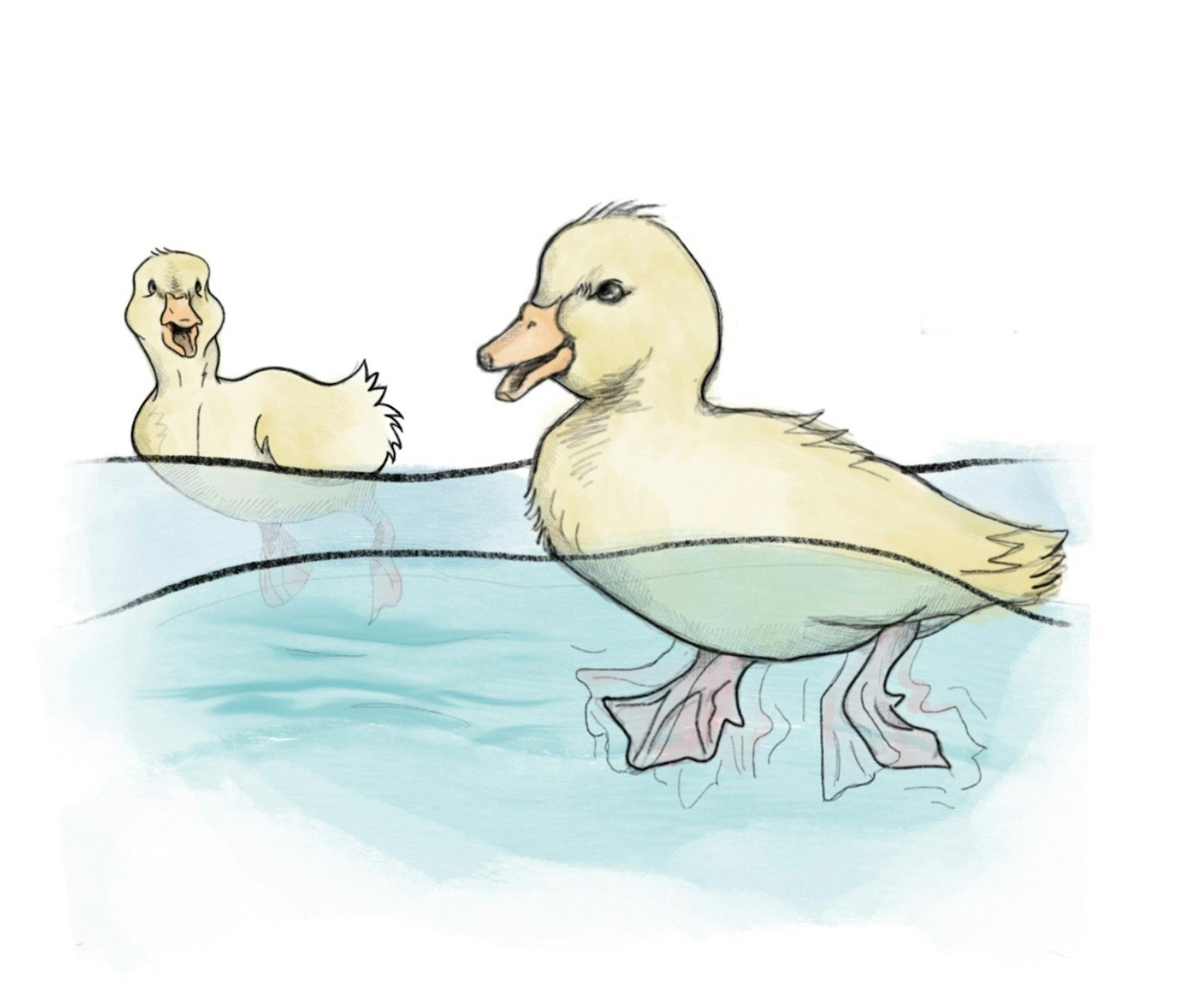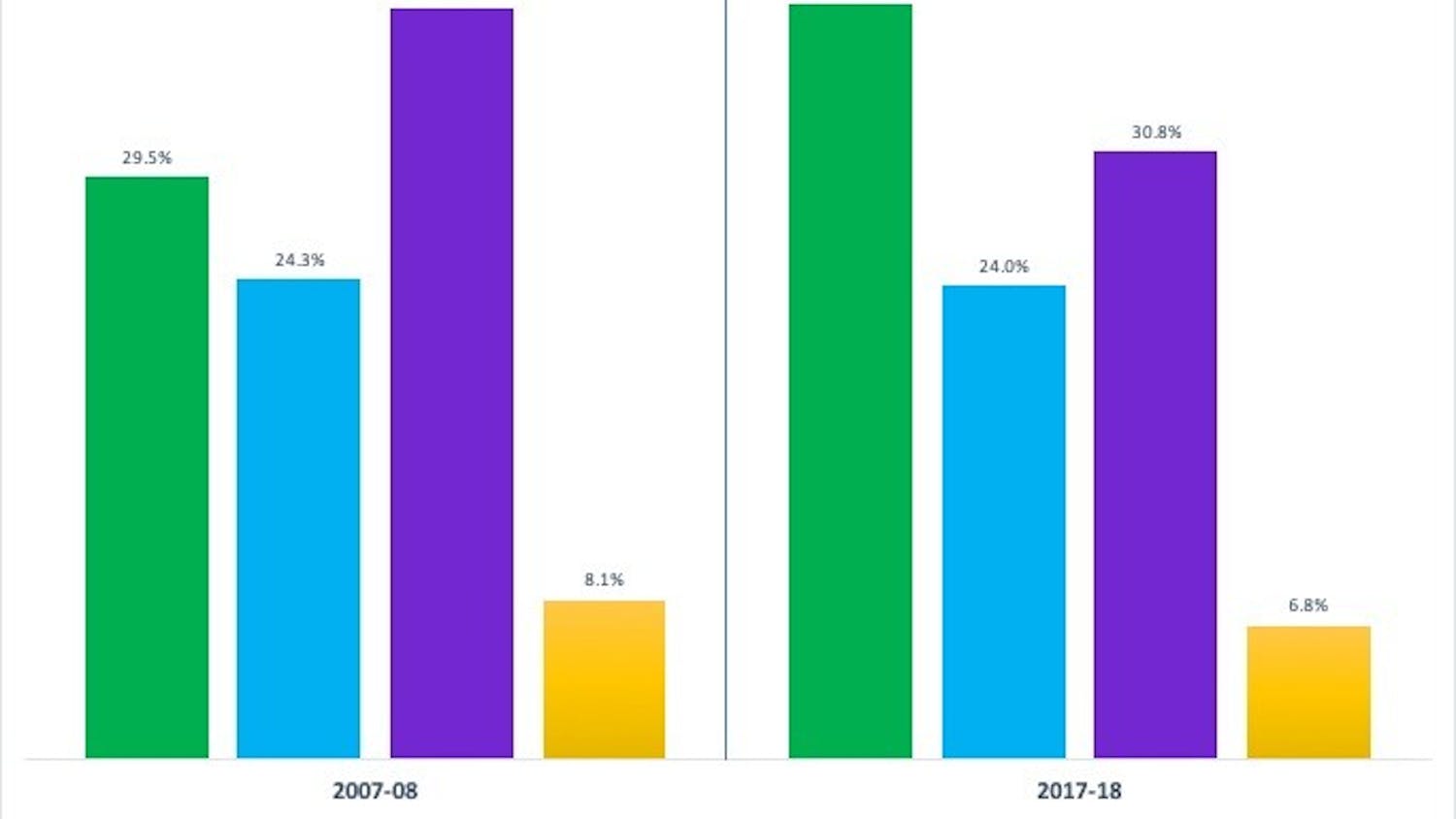I am a self-proclaimed perfectionist. I push myself to my limits to get good grades, be in every organization and keep up those #squadgoals. In the era of social media and Instagram, we are able to project a fake image of who we want to be rather than who we actually are. Striving for perfectionism goes beyond social media, though, and students put up a front that everything is “so wonderful” when, in reality, many of us are just trying to get through the week.
Enter Duck Syndrome. Duck Syndrome refers to that image of a duck we see effortlessly gliding across the water. However, what we can’t see is that, under the water, that same duck is ferociously paddling to maintain its graceful appearance.
I suppose I suffer from Duck Syndrome. On the outside, I try to be happy and balance academics, sleep and maintain an active social life. Still, there aren’t enough hours in a day, and I often find myself pulling all-nighters and struggling to get everything done. However, most people only see me from the water-up — gliding through my week, seemingly without any worries.
Duck Syndrome is also a two-way street — I simultaneously look around and see “perfect” students acing classes, playing sports and having lot of friends. I often feel inferior because I know how hard I’m working and struggling while they seem to be coasting. However, deep down I know that everyone struggles at some point and getting through Dartmouth isn’t just a breeze.
According to Student Wellness Center director Caitlin Barthelmes, Duck Syndrome is a concept that affects many Dartmouth students. While Duck Syndrome is not a formal diagnosis, it can still affect a student’s wellbeing. When students have misperceptions about the realities of their peers’ behaviors, their decisions and behaviors can easily be affected, according to Barthelmes.
“When it comes to something like feeling as if everyone else is having no challenges or transitions or stress, it could cause the feelings of isolation or lack of belonging, and we know that those two things can be associated with a decrease in mental health or increases in stress and not great wellbeing,” Barthelmes said.
Isabella Dunbar ’23 is involved in many organizations on campus and says she enjoys being busy. On the outside, she appears to be a successful and accomplished student, but in fact, she is very open about her struggles. According to her, she feels lucky that she doesn’t pressure herself to appear perfect and isn’t afraid to share her real feelings. However, while she understands that there’s probably a lot going on in people’s lives that she doesn’t know about, she said it’s easy to look at people who seem to have everything figured out and feel bad about herself.
“I know when I’m having a bad day, I look less put together, so it throws me off if I see someone that is put together,” Dunbar said. “When you are struggling, it’s easier to look around and see the flawless side of everyone and see how effortless it is for them. When you’re having a bad day, it can make it more extreme.”
However, just because someone sees other people doing well doesn’t necessarily mean they are suffering from Duck Syndrome. According to Dunbar, Duck Syndrome doesn’t really affect her because she found a community of people that is willing to share their real feelings, so she doesn’t get stressed out about it.
Dunbar’s experience matches what Barthelmes said about students’ varied reactions to struggling. Barthelmes said that while some students may make decisions that negatively impact their health, such as losing sleep to get everything done, many students deploy healthier strategies like connecting with others or getting some much-needed rest.
Barthelmes said she believes that making intentional choices about what will serve your wellbeing is a good compass to base your actions on, rather than what you think you should be doing or what others are doing.
But what do people who used to have Duck Syndrome think about it now?
Gyan Moorthy ’20 reflected on his struggles with Duck Syndrome and how it impacted him earlier in his Dartmouth experience. Moorthy said that he didn't come from a nationally ranked high school, didn’t publish in a top research journal and didn’t establish any global charities. He said he felt out of place on campus and needed to find a way to justify his acceptance to Dartmouth.
“I wondered if the admissions committee had made a mistake and part of trying to show to everyone that I really belonged was working very, very hard and pretending that I wasn’t working hard at all,” Moorthy said.
Moorthy joined many extracurriculars and quickly became a T.A. According to him, he pressured himself into taking on more and more responsibilities, projecting the image that he was able to balance his work load. However, Moorthy said he regrets his actions because they helped perpetuate the phenomenon of Duck Syndrome.
“I feel a little bit of shame because it perpetuates this culture that pushes people to take on too much. As someone comes to campus, they feel overwhelmed by coursework, and when they see that no one else appears overwhelmed by their coursework, they feel even more alienated,” Moorthy said.
Barthelmes said that she often hears students wanting to change the narrative of Duck Syndrome, much like Moorthy. To change that story, she said we need to be more honest and upfront with each other by recognizing our emotions and effectively expressing those emotions.
“I think it’s really important for students to hear the message that every student at Dartmouth belongs here, that they are all extremely valuable members of this community, have earned their way here and belong here,” Barthelmes said. “I think the more that Dartmouth and all of us can really foster community building and connection with each other — I think that’s one way to counteract Duck Syndrome.”




